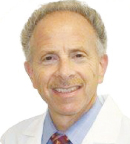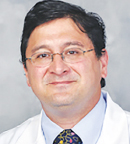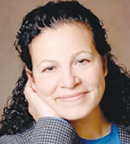The Empire State Hematology & Oncology Society (ESHOS), a State Affiliate of ASCO, was formed in January 2017 as a merger of three separate hematology and oncology professional organizations in New York.

Stuart P. Feldman, MD

Rahul Seth, DO

Maryann Roefaro, MS, FACMPE
Stuart P. Feldman, MD, of the New York State Society of Medical Oncologists & Hematologists, Inc, and Rahul Seth, DO, and Maryann Roefaro, MS, FACMPE, both of the Upstate New York Society of Medical Oncology and Hematology, joined forces in order to effectively represent the common interests of not only oncologists, but all stakeholders in cancer care in the state. Later that year, ESHOS also welcomed the Hematology Oncology Managers of NY to the newly formed society.
The society’s membership comprises over 200 multidisciplinary oncology providers in New York. ESHOS aims to improve the quality of oncology care provided to patients by supporting oncology education, offering their members innovative resources to help them stay ahead of the shifting health-care landscape, and maintaining and advancing the standards of cancer care. The society also strives to foster effective communication between providers and to promote collegial relationships among oncologists in the State of New York.
The ASCO Post spoke to Dr. Feldman and Dr. Seth about the opportunities and challenges now facing the Empire State Hematology & Oncology Society.
FAST FACTS
- The Empire State Hematology & Oncology Society (ESHOS) was founded in January 2017 as a combination of three separate hematology and oncology professional organizations in New York.
- The current President is Stuart P. Feldman, MD.
- ESHOS has over 220 members.
- Its mission is to provide members with innovative resources to help them stay ahead of the shifting health‑care landscape and challenges that directly impact the high-quality care their patients deserve.
- For more information, visit the ESHOS website at www.eshos-ny.com.
Stronger Voice for Oncology
How has your society helped oncologists in New York improve the care they deliver to patients?
Dr. Seth: Instead of having many voices, we’re joining together to be a stronger voice for oncology. I think everybody in the United States is now realizing that oncology is not just about the physicians. It’s also about the nurse practitioners, administrators, physician assistants, and others who help us take care of oncology patients. Oncology patients can present complex challenges because their care involves things like medical treatment, financial problems, and social issues, but at the same time, we need to promote their emotional safety and financial stability.
Dr. Feldman: One of the things I felt this society could do is represent more oncologists—not only in the community, but also in hospital-based systems, so they would feel that somebody is looking out for their best interests as well. When oncologists are employed by large hospital-based health-care systems, I think they lose a sense of community; they’re somewhat isolated. And I think that trend has led to premature physician burnout.
We’re bombarded with many things such as new electronic medical records that are not user friendly and add more work to our day. We have to deal with issues like insurance companies and preauthorization. We deal with enough in oncology, and all this adds to the hassles of practice, contributing to that potential for burnout.
Are you saying that being a part of a society like yours can help with physician burnout?
Dr. Feldman: Well, I think it’s helpful to talk to other physicians who are in the same situation. Maybe we can put our heads together and figure out how to prevent these things from occurring.
I think it would be a shame if a doctor, 10 or 15 years out of his or her training, felt that maybe it was time to consider stop seeing patients or leave the field of oncology altogether. A lot of oncologists coming out of training programs don’t ever practice hematology or oncology. They go right into industry, mostly to work for pharmaceutical companies. I think they’re frightened off by the hassles of patient care and the threat of declining reimbursement, and that’s going to create a difficult problem in terms of the workforce shortage in oncology. I think we need to make the practice of oncology fun again and not allow outside interests to interfere with our goal of providing high-quality cancer care to our communities.
“I think everybody in the United States is now realizing that oncology is not just about the physicians. It’s also about the nurse practitioners, administrators, physician assistants, and others who help us take care of oncology patients.”— Rahul Seth, DO
Tweet this quote
Cancer Summit
Speaking of putting your heads together, ESHOS hopes to host a cancer summit to include payers, politicians, industry, physicians, managers, and others in the cancer care arena. Can you tell us about that?
Dr. Feldman: I don’t think the pharmaceutical industry ever sits down in a public forum with politicians and people who know about value and have written on the topic. I’ve been to all kinds of cancer meetings, but I’ve never been to one where representatives from pharmaceutical companies and insurance companies as well as physicians and politicians were sitting around the table to hash out the problems and how to better solve them. I think that that would be a shining moment.
Dr. Seth: When you go through medical school, you don’t go through business school, but [the proposed summit] could teach people what might be better for their practices. It would also include formal educational teaching, focusing on practice-changing issues, new treatments for specific disease sites, and so forth.
Annual Meeting
ESHOS will host its inaugural annual meeting in October 2018 for members of the multidisciplinary care team. What can attendees expect at the meeting?
Dr. Feldman: We’ll have presenters speaking on timely subjects in hematology and medical oncology, as well as on political and socioeconomic issues. We’re also going to have a session that we’ll open up to questions from the floor, so we can put our heads together and tackle different problems that we’re dealing with now or that may be on the horizon.
We’re opening up the society to all the stakeholders, and we’re hoping that at our annual meeting there will be educational opportunities not only for physicians, but for the oncology care team as well. We want to make it an all-inclusive type of organization.
New York–Specific Issues
What are some of the issues you’re facing that are specific to New York?
Dr. Feldman: I think all of the things that are happening in New York are happening across the country. For example, the physician burnout issue related to electronic medical records adds several layers of time and effort to the care of patients everywhere.
With the advent of computerized medical records, the system seems to require more and more data from our patient care, and we are doing most of the data entry. I think about 30% of my day is data entry; it’s a big problem, and it’s not just in oncology. It has to stop, and we have to make an effort to encourage that. Doctors have to talk to each other and hear each other’s issues, and then we have to think about how we can correct them. That’s a major role of the society.
“We’re opening up the society to all the stakeholders, and we’re hoping that at our annual meeting there will be educational opportunities not only for physicians, but for the oncology care team as well.”— Stuart Feldman, MD
Tweet this quote
Opportunities and Resources
What opportunities are in store for the society now that it’s a larger, more unified group?
Dr. Seth: We’re trying to get anybody who’s interested in or touches upon oncology involved; oncology isn’t one-sided anymore. With ESHOS, we’ll be able to have a stronger voice in terms of lobbying for change to protect New York and to help make sure insurance companies don’t deny patient requirements or take advantage of the good nature of oncologists. Business practices should be fair, not manipulated.
Dr. Feldman: Forming the Empire State Hematology & Oncology Society has been an interesting endeavor. We now have a very high-tech website at www.eshos-ny.com, with a lot of information, and we hope to get this information out there to other oncologists and hematologists in New York State.
Dr. Seth: I think every state society is trying to become stronger, and we’re also trying to become more effective and efficient in giving a stronger voice to anyone involved in oncology.. We always have the patient’s best interest at heart. ■
DISCLOSURE: Drs. Feldman and Seth reported no conflicts of interest.

